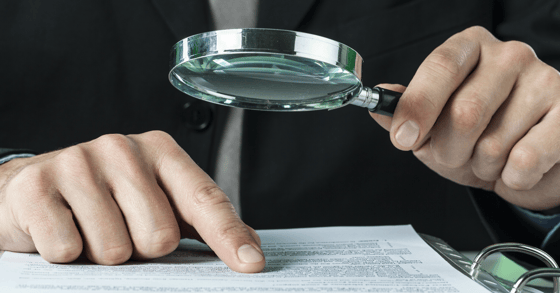Sales Tax Scaries 4: Nexus and Taxability
When Sales Tax Creeps Up on You
Ever notice how the first characters in every horror movie never...

It happened. You received a sales tax audit notice from a jurisdiction. What do you do?
Ideally, you’ve already done your homework and implemented the appropriate processes to comply in those jurisdictions where you have nexus for sales tax purposes. Wherever you are in the stages of sales tax compliance, following the below sales tax audit guide will help your process run a bit smoother.
Opening moves Begin planning the resources you need for the audit. Consider using a specialist such as a CPA or sales tax expert. You may have such an advisor in-house or you may need to engage a third party. You can sometimes leverage the experiences of your individual business contacts and trade organizations in your industry.
Begin planning the resources you need for the audit. Consider using a specialist such as a CPA or sales tax expert. You may have such an advisor in-house or you may need to engage a third party. You can sometimes leverage the experiences of your individual business contacts and trade organizations in your industry.
When engaging outside consultants, document beforehand the scope of their work and compensation. Consultants can provide audit support in one of three primary ways:
Ad hoc support including answering questions and reviewing workpapers throughout the audit process.
Analysis of findings at the conclusion of the audit to identify mitigation opportunities.
Management of the audit/auditor – handling the day-to-day requirements of the audit and being the primary contact person with the auditor.
Should you decide to manage the audit in-house, you may be inclined to keep the audit from your staff. Bad idea: Explain the situation to your staff and assign a liaison between the auditor and your staff. The liaison should be the ONLY person on your staff who communicates with the auditor – keeping all communication consistent and controlled. Choose someone who can confidently communicate with the auditor while not being the sole resource for all sales tax matters – i.e. they can say “I don’t know – but I will find out,” when asked a question by the auditor.
The audit notification should state the intended start date of the audit, and the period under audit (usually at least 36 months) and will likely list the records the auditor intends to examine.
(Keep in mind: Auditors are not your advocates. The auditor’s job will be to find discrepancies and determine financial penalties. Guard what you say and what information you offer.)
The duration of the audit will depend on, among other factors, the size of your company and the complexity of the data and issues involved. One of your first initiatives will be negotiating the terms of the audit, balancing the time you need to prepare/compile the data against the auditor’s deadlines. Auditors are usually accommodating when additional time is required to provide data – however, it is also common for the auditor to request a waiver – extending the time in which the auditor can complete their review of the data and not losing any periods to the statute of limitations. To the extent the extension of time is favorable and necessary to the taxpayer, it is usually an appropriate document to execute.
Paperwork
Have your data organized and prepared to provide to the auditor. Knowledge is power – understand where issues may be found and establish a plan to manage/address them during the audit. If possible, have an expert review your data/compliance process before the auditor arrives. The list of requested records will usually include items not relevant to your business or to the scope of the audit – it is beneficial to understand the objective of the audit/auditor in this regard. You can expect to provide copies of your filed returns and supporting data (including sales journal, exemption certificates, and general ledger data supporting the returns).
There is usually flexibility in the volume of data required – sampling is quite common in sales tax audits. Knowing which pieces of documentation to provide and when to provide them is important. Providing a flow of information to the auditor indicates your willingness to work with them. However, you may choose to delay providing certain documentation and wait for the auditor to ask for that documentation a second or third time before providing it- sometimes the auditor will be satisfied with what you have provided and will not ask for the documentation again.

Be professional
There is usually an initial in-person interview between your liaison and the auditor. During this interview, you’ll have an opportunity to explain your business and business model and properly describe your sales tax compliance process. Depending on your business activities and the maturity of your sales tax compliance process, this initial interview can afford the taxpayer an opportunity to influence the scope of the audit and required documentation. Take notes in audit meetings and treat your auditor respectfully and with courtesy
Defending yourself in a sales tax audit can consume substantial resources of the company and if not managed effectively can expand into a greater need for third-party consultants and additional costs. TTaxConnex can help you prepare with our sales tax audit guide. We can assist you in establishing and maintaining effective processes in order to mitigate sales tax risk for your company. Contact us to learn about the latest developments in sales-tax nexus and what they mean to you and your company.
Check out our eBook for more tips on surviving a sales tax audit, click below to download:

Ever notice how the first characters in every horror movie never...
Copyright © 2025 TaxConnex, LLC